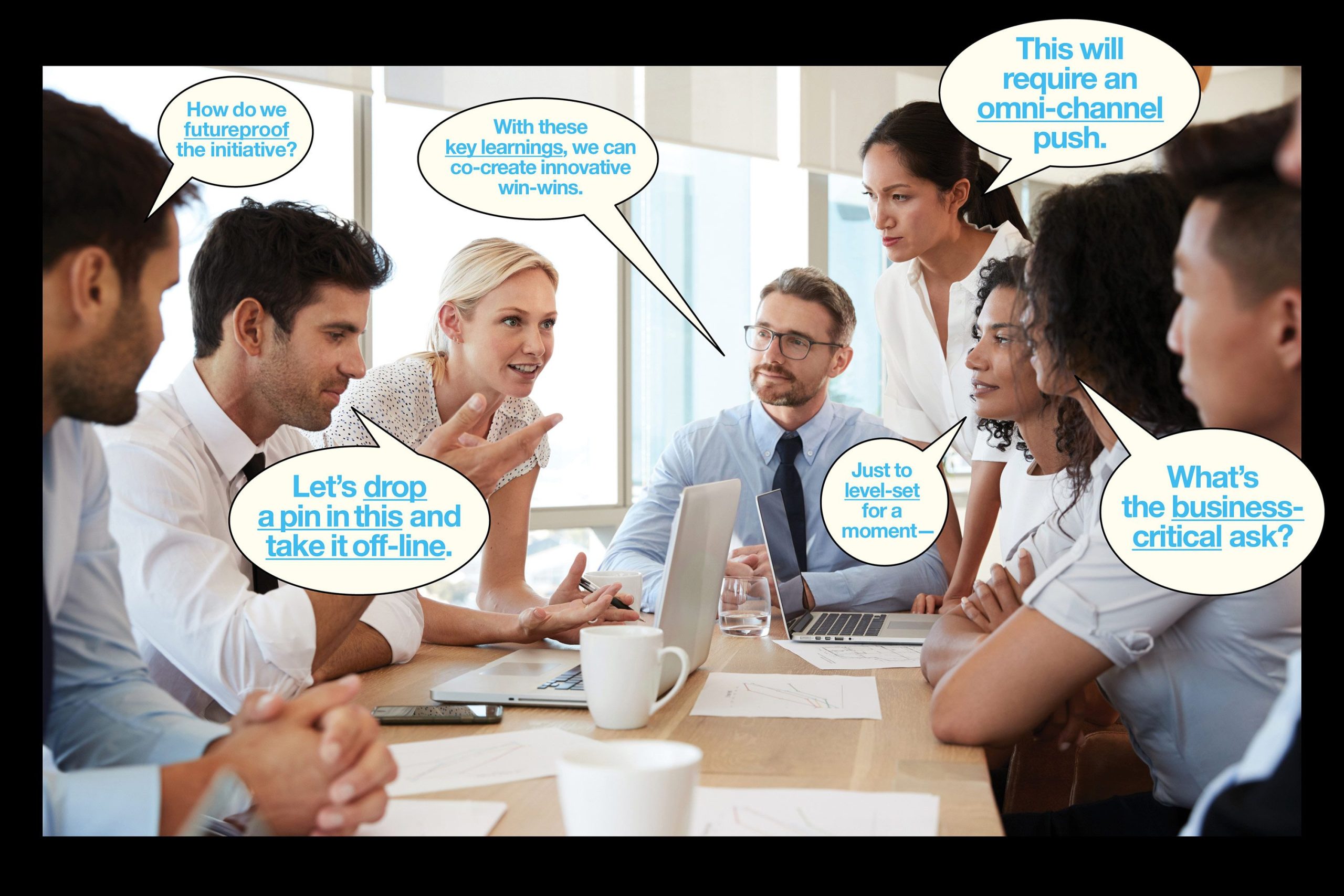How to Elevate the Way You Speak in Business Meetings?
To elevate the way you speak in business meetings, focus on clear and concise communication techniques, utilize active listening skills, and practice speaking assertively and confidently. These strategies will help you effectively convey your ideas and contribute meaningfully to the conversation, enhancing your overall presence and impact in professional settings.
This article discusses practical tips and actionable steps to improve your speaking skills and boost your performance in business meetings. By implementing these strategies, you can enhance your communication abilities, build relationships, and make a positive impression in your professional interactions.

Credit: www.vulture.com
Importance Of Effective Communication In Business Meetings
Effective communication is vital in business meetings as it enhances understanding and collaboration. Elevate your speaking skills by being clear, concise, and confident, using active voice and avoiding common phrases.
Developing Strong Communication Skills
Developing strong communication skills is crucial for effective business meetings. Effective communication involves the ability to convey your thoughts and ideas clearly, concisely, and confidently. By honing your communication skills, you can ensure that your message is understood, and you can actively engage with your colleagues and clients.
Here are a few strategies to develop strong communication skills:
- Practice active listening to understand others and respond appropriately.
- Use clear and simple language to make your message easily comprehensible.
- Pay attention to your body language, ensuring it conveys confidence and professionalism.
- Prepare and organize your thoughts beforehand to articulate your ideas effectively.
- Seek feedback from others to identify areas for improvement and make necessary adjustments.
Building Credibility And Influence
Building credibility and influence through effective communication is essential for success in business meetings. When you speak with confidence and clarity, you establish yourself as a credible and trustworthy professional. This credibility helps you gain the respect of your colleagues and clients, enabling you to influence decisions and drive positive outcomes.
Here are some ways to build credibility and influence:
- Prepare thoroughly for meetings, ensuring you have relevant information and data to support your points.
- Speak consistently with integrity, following through on your promises and commitments.
- Show empathy and understanding towards others’ perspectives, promoting collaboration and teamwork.
- Present your ideas with conviction, using persuasive language and supporting evidence.
- Continuously improve your knowledge and expertise to demonstrate your value and competence.

Credit: www.themuse.com
Understanding Your Audience
Understanding your audience is essential to elevate your speaking skills in business meetings. By tailoring your message to suit their needs, interests, and preferences, you can captivate their attention and make a lasting impact.
Understanding Your Audience
In order to elevate the way you speak in business meetings, it is crucial to have a solid understanding of your audience. The way you communicate can greatly impact the success of your meetings, so taking the time to identify key stakeholders and adapting to different communication styles is vital.
Identifying Key Stakeholders
One of the first steps in understanding your audience is identifying the key stakeholders. These are the individuals who have a vested interest in the outcome of the meeting and can influence decisions. Take the time to identify who these individuals are and learn about their roles and responsibilities within the organization.
To do this, you can create a table to organize the information. Here is an example:
| Stakeholder Name | Role |
|——————|—————————————|
| John Smith | CEO |
| Sarah Johnson | Director of Marketing |
| Michael Davis | CFO |
| Emily Thompson | Project Manager |
Adapting to Different Communication Styles
Once you have identified the key stakeholders, the next step is to adapt your communication style to match theirs. People have different preferences when it comes to receiving information, so it is important to be flexible in your approach.
Some individuals prefer a more direct and concise communication style, while others may prefer a more detailed and analytical approach. By observing their communication patterns and adjusting your own style accordingly, you can ensure that your message is received and understood effectively.
Here are some tips for adapting to different communication styles:
1. Listen actively: Pay close attention to how others communicate and actively listen to their needs and concerns. This will help you tailor your message to their style.
2. Use appropriate language: Consider the vocabulary and tone that your audience is accustomed to. Avoid using jargon or technical terms that may not be familiar to them.
3. Be clear and concise: Keep your message straightforward and avoid unnecessary details. This will help ensure that your audience understands your key points.
4. Customize your delivery: Tailor the way you present information based on the preferences of your audience. Some may prefer visual aids, while others may appreciate data-driven insights.
By understanding your audience and adapting to their communication styles, you can elevate the way you speak in business meetings and increase your chances of success. Take the time to identify key stakeholders and customize your approach accordingly. This will not only showcase your professionalism, but also help you build stronger relationships and achieve your desired outcomes.
Improving Verbal And Nonverbal Communication
In a business setting, effective communication is crucial for success. This includes both verbal and nonverbal communication. By improving your skills in these areas, you can elevate the way you speak in business meetings, making a positive impact on your colleagues and superiors. In this blog post, we will explore two key aspects of communication: speaking clearly and concisely, and using body language effectively.
Speaking Clearly And Concisely
Clear and concise communication is essential in business meetings. To speak clearly, follow these tips:
- Articulate your words: Pronounce each word clearly and avoid mumbling. This helps ensure that your message is easily understood by everyone in the meeting.
- Use short sentences: Keep your sentences concise and straightforward. Long, convoluted sentences can confuse your listeners and dilute your message.
- Avoid jargon: While industry-specific terms have their place, avoid overusing jargon in meetings. Keep your language accessible to all participants.
- Pause and breathe: Take brief pauses between sentences to allow others to process your words. Additionally, taking deep breaths can help you speak with confidence and clarity.
Using Body Language Effectively
Your body language plays a significant role in how you come across in meetings. Consider these strategies for using body language effectively:
- Maintain good posture: Sit up straight and avoid slouching. This projects confidence and engages your audience.
- Make eye contact: When speaking or listening, maintain eye contact with the person you are engaging with. This demonstrates attentiveness and respect.
- Use hand gestures: Appropriate hand gestures can enhance your message and make it more engaging. Just be mindful of not overdoing it.
- Watch your facial expressions: Your facial expressions can convey your emotions and attitude. Be aware of your expressions to ensure they align with your intended message.
Improving verbal and nonverbal communication skills will undoubtedly elevate the way you speak in business meetings. By speaking clearly and concisely, and using body language effectively, you will command attention, engage your audience, and facilitate productive discussions.
Active Listening And Engaging In Meaningful Dialogue
In the fast-paced world of business meetings, effective communication skills are crucial for success. One of the key ways to elevate the way you speak in these meetings is through active listening and engaging in meaningful dialogue. By practicing active listening skills and asking thought-provoking questions, you can contribute to discussions, build rapport with colleagues, and enhance your overall communication abilities.
Practicing Active Listening Skills
Active listening is more than just hearing the words being spoken; it involves fully focusing on the speaker and understanding their message. By implementing active listening techniques, you can demonstrate your attentiveness and show respect for the speaker. Here are some ways to practice active listening:
- Give the speaker your undivided attention by maintaining eye contact and avoiding distractions.
- Avoid interrupting the speaker and wait for natural pauses before responding.
- Reflect on what the speaker is saying by summarizing their key points or paraphrasing their ideas.
- Ask clarifying questions to ensure you fully understand the speaker’s message.
- Show empathy and understanding by nodding or using appropriate non-verbal cues.
By actively listening, you can engage with the speaker and contribute meaningfully to the discussion.
Asking Thought-provoking Questions
Engaging in meaningful dialogue involves more than just listening and responding; it also involves asking thought-provoking questions that stimulate conversation and contribute valuable insights. Here are some ways to ask thought-provoking questions:
- Ask open-ended questions, which require more than a simple “yes” or “no” answer, to encourage deeper exploration of the topic.
- Probe for additional information by asking follow-up questions that delve into the details of the speaker’s statements.
- Challenge assumptions or explore alternative perspectives by asking questions that encourage critical thinking.
- Seek clarification or further elaboration by asking for specific examples or real-life anecdotes.
- Show genuine curiosity and interest in the speaker’s ideas by asking questions that demonstrate active engagement.
By asking thought-provoking questions, you can contribute to a more enriching and productive discussion, showcasing your expertise and enhancing your presence in business meetings.
Overcoming Challenges And Developing Confidence
Developing strong communication skills is essential for success in business meetings. Overcoming challenges and building confidence in speaking can significantly elevate your presence and influence in these settings. In this section, we will explore two key aspects: dealing with nervousness and public speaking anxiety, and building self-assurance and assertiveness.
Dealing With Nervousness And Public Speaking Anxiety
Nervousness and public speaking anxiety are common challenges that can hinder effective communication in business meetings. Here are some strategies to help you overcome these obstacles:
- Prepare extensively: Thorough preparation boosts your confidence and reduces anxiety. Familiarize yourself with the meeting agenda, research the topics, and rehearse your points.
- Practice deep breathing: Deep breathing exercises can help calm your nerves and reduce anxiety. Take slow, deep breaths before and during the meeting to stay centered and composed.
- Visualize success: Envision yourself speaking confidently and engagingly during the meeting. This mental rehearsal can help alleviate anxiety and boost your self-assurance.
- Focus on the audience: Instead of fixating on your own nervousness, shift your attention to the needs and interests of the audience. Concentrate on delivering value and meeting their expectations.
- Seek opportunities to speak: The more you expose yourself to public speaking, the more comfortable you will become. Volunteer for presentations or join a Toastmasters club to practice and receive constructive feedback.
Building Self-assurance And Assertiveness
To elevate the way you speak in business meetings, it’s crucial to build self-assurance and assertiveness. Consider the following tips:
- Know your subject matter: Thoroughly understand the topics you’ll be discussing to confidently answer questions and contribute valuable insights.
- Adopt a confident body language: Stand tall, make eye contact, and use gestures purposefully. Confident body language can enhance your credibility and command attention.
- Use positive affirmations: Repeat positive affirmations to yourself before and during the meeting. Encouraging phrases like “I am a capable speaker” can boost your confidence and shift your mindset.
- Speak with conviction: Project your voice clearly and speak with conviction. Believe in the value of your ideas and convey them assertively.
- Seek feedback: Actively seek feedback from colleagues or mentors after meetings. Constructive criticism can help you identify areas for improvement and refine your speaking skills.
By implementing these strategies, you can overcome challenges, develop confidence, and elevate your speaking abilities in business meetings. Remember, practice and persistence are key to continuous improvement. Embrace opportunities to speak and refine your communication skills, and you’ll establish a powerful presence in the business world.

Credit: www.facebook.com
Frequently Asked Questions
Faq 1: How Can I Improve My Speaking Skills For Business Meetings?
Practice speaking regularly, join Toastmasters, watch TED talks, and seek feedback from colleagues or mentors.
Faq 2: What Are Some Tips To Confidently Speak In Business Meetings?
Prepare and rehearse your content, maintain eye contact, use clear and concise language, and project confidence through body language.
Faq 3: How Can I Overcome Nervousness While Speaking In Business Meetings?
Focus on your breathing, visualize a successful outcome, prepare well in advance, and remind yourself of your expertise and qualifications.
Conclusion
Elevating your speaking skills in business meetings is crucial for showcasing your professionalism and expertise. By implementing these strategies, such as having a clear objective, active listening, using concise and impactful language, practicing and seeking feedback, you can enhance your communication style and leave a lasting impression on your colleagues and clients.
Remember, effective communication is key to success in the business world. Start implementing these tips today and elevate the way you speak in your future meetings.




